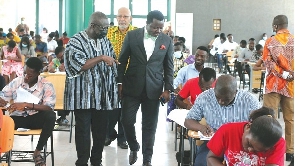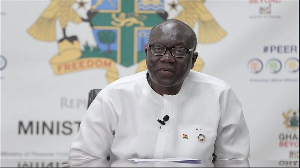Introduction:
In a disconcerting revelation, it has come to light that a staggering 6,481 out of 7,728 teachers in Ghana failed their recent Teacher Licensure Exams. This alarming statistic raises significant concerns about the quality of education and the competence of teachers in the country. Such a high failure rate demands immediate attention from policymakers to identify the root causes, address the challenges, implement effective interventions, and provide recommendations to strengthen the educational system in Ghana.
Causes of teacher licensure exam failure:
Several factors contribute to the disappointing outcomes of the Teacher Licensure Exams. These include:
Inadequate teacher training: Insufficient preparation and training of teachers, particularly in the areas covered by the licensure exams, have been identified as a primary cause. The existing curriculum and training methods should be critically evaluated to ensure they align with the requirements of the exams.
Limited access to resources: Many teachers in Ghana lack access to essential resources, such as up-to-date textbooks, teaching aids, and educational technology. This hampers their ability to stay abreast of current teaching methodologies and deliver quality education.
Pedagogical gaps:The exams assess not only subject knowledge but also pedagogical skills. It is crucial to identify gaps in the training of teachers and provide them with the necessary pedagogical tools and techniques to enhance their teaching methods.
Challenges faced by the educational system:
The high failure rate in the Teacher Licensure Exams presents significant challenges for Ghana's educational system:
Diminished educational standards: The failure of a substantial number of teachers highlights a decline in the overall quality of education. This situation has adverse effects on students' academic performance and undermines the reputation of the education sector.
Negative impact on student learning: Unqualified or inadequately trained teachers struggle to deliver effective instruction, resulting in compromised learning outcomes for students. This can perpetuate a cycle of underachievement and hinder national development.
Policy interventions and recommendations:
To address the implications of teacher licensure exam failure, the following policy interventions and recommendations should be considered:
Strengthen teacher training programs: Enhance the quality and relevance of teacher training programs to ensure comprehensive preparation for the licensure exams. This includes reviewing and updating the curriculum, incorporating practical teaching experiences, and integrating pedagogical training.
Professional development opportunities: Establish continuous professional development programs to support teachers throughout their careers. These programs should focus on enhancing subject knowledge, pedagogical skills, and familiarity with innovative teaching methods.
Access to resources: Improve teachers' access to up-to-date teaching resources, including textbooks, teaching aids, and technology. Collaborate with international partners, NGOs, and local communities to provide necessary resources and bridge the resource gap.
Mentoring and support systems: Implement mentorship programs that pair novice teachers with experienced educators who can provide guidance, support, and professional advice. This will help new teachers build confidence and improve their teaching abilities.
Rigorous monitoring and evaluation: Establish a robust monitoring and evaluation system to assess the performance and effectiveness of teachers in the classroom. Regular assessments can identify areas of improvement and enable targeted interventions.
Collaboration with teacher unions and stakeholders: Engage in constructive dialogues with teacher unions, educational institutions, and other stakeholders to gather valuable insights and build consensus on reforms. Encourage their active participation in shaping policies that promote quality education.
Conclusion:
The high failure rate in the Teacher Licensure Exams among Ghanaian teachers demands urgent attention from policymakers to address the implications for the educational system. By strengthening teacher training programs, providing resources and support systems, and implementing rigorous monitoring and evaluation mechanisms, Ghana can take significant strides towards improving the quality of education and nurturing a competent teaching workforce. It is through collaborative efforts and sustained commitment that Ghana can unlock the potential of its educational system, ensuring a brighter future for its students and the nation as a whole.
Opinions of Thursday, 22 June 2023
Columnist: Seth Ignatius Donkor















